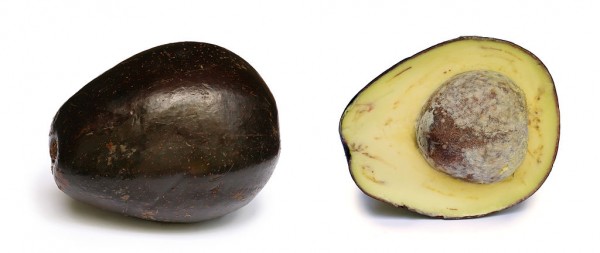
Rich, creamy and flavorful, avocados are a versatile fruit that add heft and health to many dishes. While avocados have a high fat content, they are also packed with nutrients and are a great way to add healthy fat to your diet.
Avocados contain an amazing array of phytonutrients: Phytosterols especially beta-sitosterol, stigmasterol, and campesterol; carotenoids beta-carotene, alpha-carotene, lutein, neochrome, neoxanthin, chrysanthemaxanthin, beta-cryptoxanthin, zeaxanthin, and violaxanthin, flavonoids :epicatechin and epigallocatechin 3-0-gallate; polyhydroxylated fatty alcohols. Alpha-linolenic acid (an omega-3 fatty acid) and oleic acid, according to whfoods.com.
Avocados are a good source of pantothenic acid, dietary fiber, vitamin K, copper, folate, vitamin B6, potassium, vitamin E, and vitamin C.
Although they are fruits, avocados have a high fat content of between 71 to 88% of their total calories-about 20 times the average for other fruits. A typical avocado contains 30 grams of fat, but 20 of these fat grams are health-promoting monounsaturated fats, especially oleic acid, according to whfoods.com.
Healthy fats
fats account for around three quarters of the calorie count of an avocado. Most of it is monounsaturated fat, in the form of oleic acid. Monounsaturated fat is considered to be a "good fat" which reduces levels of bad cholesterol in your blood and lowers your risk of stroke and heart disease.
Protein
an average avocado contains around 4 grams of protein, which is much more than most other fruits.
Sugar
avocado's sugar content is low compared to other fruits. Half an avocado contains approximately 0.2 g of sugar.
Vitamins and minerals
avocados are an excellent source of potassium (containing more per weight than bananas). In addition, avocados are rich in vitamin K, Vitamin B9, vitamin B6, vitamin B5 vitamin C, and vitamin E.
Dietary fiber
a medium avocado contains 11 grams of fiber, which is close to half of the daily recommended minimum intake.
Here are some of the most abundant nutrients, in a single 3.5 ounce (100 gram) serving (3):
Vitamin K: 26% of the RDA.
Folate: 20% of the RDA.
Vitamin C: 17% of the RDA.
Potassium: 14% of the RDA.
Vitamin B5: 14% of the RDA.
Vitamin B6: 13% of the RDA.
Vitamin E: 10% of the RDA.
Then it contains small amounts of Magnesium, Manganese, Copper, Iron, Zinc, Phosphorous, Vitamin A, B1 (Thiamine), B2 (Riboflavin) and B3 (Niacin).
This is coming with 160 calories, 2 grams of protein and 15 grams of healthy fats. Although it contains 9 grams of carbs, 7 of those are fiber so there are only 2 "net" carbs, making this a low-carb friendly plant food.
Risks and precautions
Despite being very rare, avocado allergies do exist. According to a case report published in the journal Allergy, Asthma & Clinical Immunology, avocado allergies are associated with "coughing, wheezing, nasal stuffiness, generalized urticaria and periorbital edema."
It is important to consult your doctor if you begin to experience any unpleasant side effects after eating avocado.

